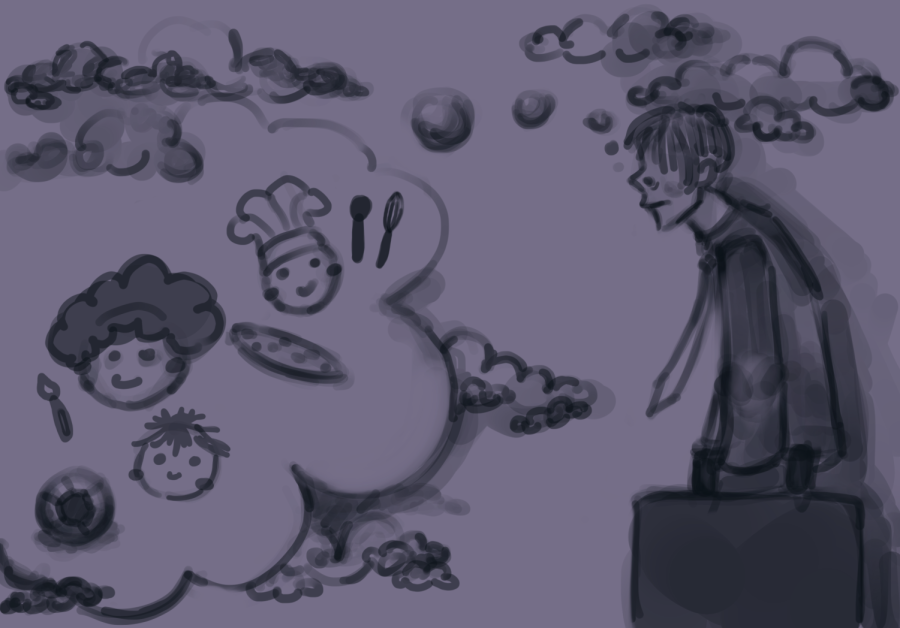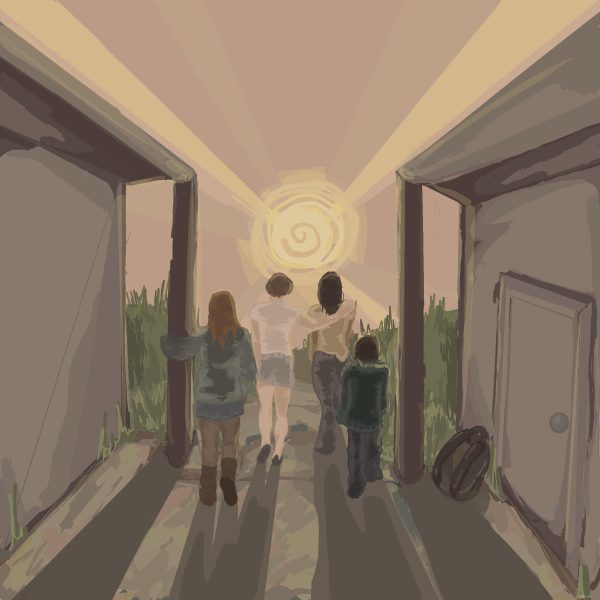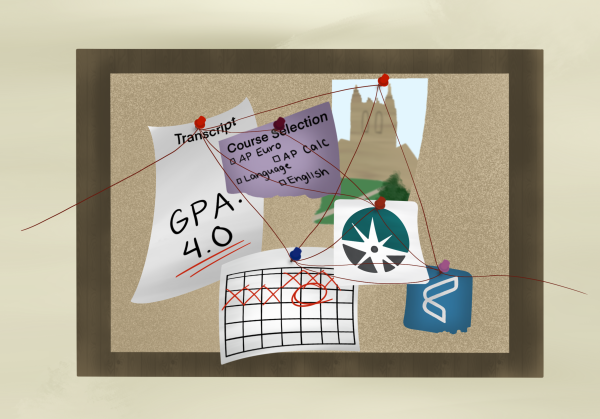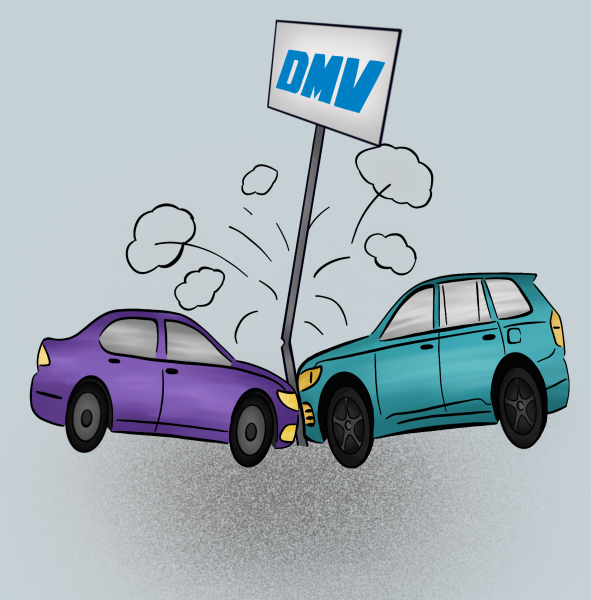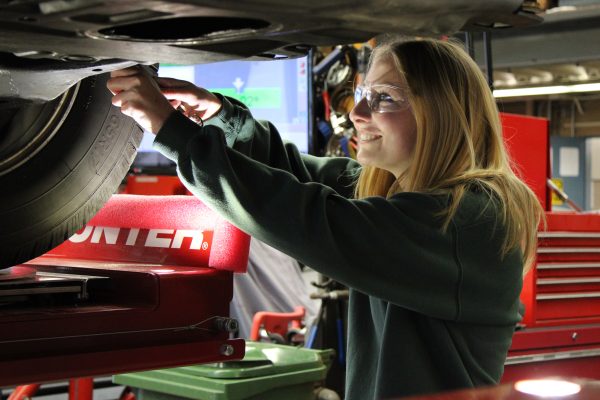What to Be When We Grow Up?
Isabella Domingo (she/her)
The pressures of society can change our dreams about what we want to be when we grow up.
“What do you want to be when you grow up?” is the question frequently asked of youth ranging from newly-walking toddlers to maturing adolescents as they attempt to navigate society. Such a question is embedded with endless pressures and standards.
Since ages where being a queen or a transformer are attainable life choices, these standards are being integrated into children. At first, being a “grown-up” is the epitome of excitement for a youngster. It is the horizon that they strive to reach. However, soon the dreams of crowns and wings disappear to make room for white lab coats and stethoscopes.
In our own Lamorinda bubble, so many students have been subjected to this treatment whether it is consciously or subconsciously being administered. Senior Elizabeth Chien first remembers thinking about and being asked about her future plans at age six. “I always said ‘I want to be a doctor when I grow up’ when really now that’s not going to happen.” Parents, teachers, counselors, relatives, and even strangers all influence a child’s answer to this question. The influencers themselves most likely couldn’t escape being affected in the same way.
This influence comes from expectations formed by parts of society such as high achieving areas like Lamorinda that state any successful person must attend a private college, must attend a graduate school and receive an esteemed degree, and must be involved in a traditional career such as a doctor or lawyer in order to reach their success. It feels that society says many can’t succeed in the arts, on a stage, with a brush or a pen, that such careers aren’t careers at all, but merely directionless hobbies. Senior Ashley Cloza has experienced this first-hand. Cloza first wanted to be a graphic designer, but “[her] parents have always been encouraging [her] to be in the medical field so [she] always thought an art path wouldn’t be in their wishes.”
College and Career Center counselor Joan Batcheller said, “I think part of [parent pressure] is a lack of education of how [applying to colleges] is today. A lot of parents don’t know how super competitive it is to get into [UC’s and ivy league schools].” People can have “unrealistic expectations and at the end of the day you have to consider is it really the best education [going to the UC and ivy league schools]? Probably not.”
At Campo, while staff members may work hard to admonish these expectations of spending a decade and a fortune in private institutions, or slaving away in an office, their work is sometimes in vain. Providing students with alternative pathways is incredibly beneficial. However, the stigma that has been formed around people not following traditional pathways has existed for far too long for these alternative options to be easily viable and seriously considered.
“We’re getting off track.” Batcheller said. “We’re too focused on the branding and the naming [given by prestigious private schools]. Really it’s about discovering who you are in the best environment that fits you.”
AP Psychology teacher Diane Bessette added, “What concerns me as a teacher is when there’s an idea that there’s only one kind of category of [a] good school. I think that can be pretty unhealthy. I always tell students they should have three dream colleges and that one of them should be one that they know they’re going to get into because college admissions are very unpredictable.”
Even when students believe they aren’t being influenced by society’s standards, they are. “There’s high amounts of stress in terms of ‘oh colleges expect you to be starting a nonprofit, getting all A’s on your transcript, start a business, and take classes outside of school,” Chien said.
We can’t escape society’s influence because it is omnipresent. Society illustrates figures such as businessmen and women, surgeons, and attorneys as the ones with the most devoted media and wealth. “I feel like you’re more looked up to if you have a successful job,” Cloza said. When one views a commercial promoting a product seeing someone with a put together, traditional life, it makes consumers more likely to indulge in a purchase.
This is because those lifestyles are attractive. Why? Because we are told by counselors, by family members, by posters in the school hallways that those lifestyles bring the greatest success. No matter how many times one says “money can’t buy happiness” we still all want money, because money is associated with success. In America, in California, and especially in Lamorinda, success is usually seen as the epitome of our human existence.
“A lot of family members say ‘oh as my child I want you to be able to support yourself’ so people tend to gravitate towards jobs that will get them money, even if they’re not passionate about it,” Chien said.
This means in many minds, a courtroom or a heavily sterilized pediatric office still looks picture perfect even while a watercolor canvas or a polished violin may bring more excitement.
“What do you want to be when you grow up?” This question is so daunting. Some choose to utter “I don’t know” so they don’t have to face an awkward silence or raised brows. We see a right answer and a desired one, and unfortunately for the majority, they are not the same.
Anxiety, depression, loss of self, lack of confidence can stem from all of this. Mental health becomes the victim. “Students are definitely negatively affected,” Cloza said. For the current generation what’s vital “really more than anything is mental health and wellness,” Batcheller added.
Everyone needs to be mindful, to stop asking this question so frequently, stop implying its hidden meanings, stop addressing it towards six-year-olds climbing trees. This doesn’t mean don’t look towards the future, it just means appreciate the growth in the moment more. Value the identity revelations, value the developing passions, and value the time with friends. Reflecting on the day, on the moment, in our fast moving Lamorinda climate needs to be a greater facet of youth lifestyles.
Your donation will support the student journalists of Campolindo High School's The Claw. Your contribution will allow us to produce more issues and cover our annual website hosting costs.
